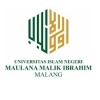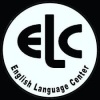Implementing Question-Answer Relationship (QAR) Strategy in Teaching Reading on Practical English Course
Abstract
Full Text:
PDFReferences
Amiruddin, Esa P & Syafitri, Nining. 2021. The Perception Of English Teachers Related To Textbook Provided By Government As A Primary Teaching Material. ENGLISH EDUCATION JOURNAL (E2J) Research Journal. Publisher: English Education Department Faculty of Teacher Training and Education Universitas Dayanu Ikhsanuddin.
Anwar, Indry W., Sailuddin & Sartika P. (2022). Academic Reading Difficulties in Higher Education. JOLLT Journal of Languages and Language Teaching, 309-314.
DOI: https://doi.org/10.33394/jollt.v%vi%i.4849
Arisman, R., Adu, Baharudin., & Ambotang, N. A. F. (2021). Reading Comprehension Improvement through Question and Answer Relationship (QAR) Method. English Language in Focus (ELIF), 3(2), 109–118. DOI: https://doi.org/10.24853/elif.3.2.109-118
Astuti, Prihatin P. (2019) Improving the Students’ Reading Comprehension through Question and Answer Relationship (QAR) Reading Strategy. Journal: Lexeme : Journal of Linguistics and Applied Linguistics, DOI: 10.32493/LJLAL.V1I1.2480
Burns, P.C., Roe, B., & Ross, E.P. 1996. Teaching Reading in Today’s Elementary Schools. Boston: Houghton Mifflin
Cahyono, B.Y. & Widiati, U. 2006. The Teaching of EFL Reading in the Indonesian Context. The State of the Art. TEFLIN Journal, 17(1):37-56.
Depdiknas. 2007. Panduan Lengkap KTSP (Kurikulum Tingkat Satuan Pendidikan). Yogyakarta: Pustaka Yustisia
Duffy, Gerald G. 2009. Explaining Reading: A Resource for Teaching Concepts, Skills, and Strategies. New York: The Guilford Press.
English Online. Reading Strategies: Middle School Edition. Content Area. (Online), (http://www.state.tn.us/education/ci/reading/grades. 6-8.pdf. accessed on March 23rd, 2009).
Kemmis, S. and Mc Taggart. 1992. The Action Research Planner. Geelong: Deakin University Press.
Pang, Elizabeth S; Muaka, Angaluki; Bernhardt, Elizabeth B. & Kamil, Michael L. (Online) .Teaching Reading.(http://www.ibe.unesco.org. accessed on March 12,2009)
Parhadjanovna, S. S. (2023, October). Astering the Art of Reading: Techniques and Strategies to Enhance Reading Skills [Paper Presentation]. Teaching Foreign Languages in the Context of Sustainable Development: Best Practices, Problems and Opportunities. Tashkent State University of Oriental Studies, the Department of Western Languages. Https://Doi.Org/10.55640/Iscrc-3214
Pham, U. M. N. (2021). The Effects of Reading Habits on Reading Comprehension among EFL Students at Van Lang University. International Journal of TESOL & Education, 15-44.
Roe, D Betty, Stoodt, Barbara D, & Burns, Paul C. 1995. Secondary School Reading Instruction – The Content Areas. Boston: Houghton Mifflin
Seifert, S. (2021). Is Reading Comprehension Taken for Granted? An Analysis of Austrian Textbooks in Fourth and Sixth Grade. Tech Know Learn 26, 383–405 (2021).
DOI: https://doi.org/10.1007/s10758-021-09490-w
Riasman, R., Simarmata, E. J., & Samosir, R. (2024). a Classroom Action Research on the Impact of Demonstrative Teaching Methods on Teacher Effectiveness and Student Learning Outcomes. Jurnal Pendidikan Tambusai.
Susiati & Mufidati, Elok. 2020. An Evaluation of Indonesian English Textbook for Secondary School: Teachers’ Perspective. Proceedings of the 5th Progressive and Fun Education International Conference (PFEIC 2020). Advances in Social Science, Education and Humanities Research, volume 479. Published by Atlantis Press SARL.
Suwondo, S., & Syaifullah, S. (2021). Do Simplified Text Can Improve Students’ Reading Comprehension in Narrative Text?: A Classroom Action Research Perspective . Utamax: Journal of Ultimate Research and Trends in Education, 1(3), 125-129.
DOI: https://doi.org/10.31849/utamax.v1i3.5945
Suyadi & Husnaini. 2022. Reading Skills Used in English Textbook. Jurnal Ilmiah Universitas Batanghari Jambi, 22(2), Juli 2022, 1322-1328. Lembaga Penelitian dan Pengabdian kepada Masyarakat universitas Batanghari Jambi ISSN 1411-8939 (Online), ISSN 2549-4236 (Print) DOI 10.33087/jiubj.v22i2.2405.
Thomas, R.Murray. 2003. Blending Qualitative and Quantitative Research Methods in Theses and Dissertations. Thousand Oaks: Corwin
Yahya, Nagham Q. (2021). Developing EFL Students’ Metacognition by Using Question-AnswerRelationship (QAR) Strategy. Journal of Tikrit University for Humanities, 28 (11), 23-1. DOI: http://dx.doi.org/10.25130/jtuh.28.11.2021.01
Yusnani Timotea Samosir, Fenty Debora Napitupulu, & Sahat Taruli Siahaan. (2023). The Use of Song Media to Improve Vocabularies Achievement of Seventh Grade Students in SMP Gajah Mada Medan. Jurnal Scientia, 12(04), 465-470.
DOI: https://doi.org/10.18860/jeasp.v7i1.26526
Refbacks
- There are currently no refbacks.

This work is licensed under a Creative Commons Attribution-ShareAlike 4.0 International License.







Editorial Office:
Pusat Pengembangan Bahasa
Program Khusus Pengembangan Bahasa Inggris (PKPBI)
Universitas Islam Negeri Maulana Malik Ibrahim Malang
Gedung C lantai 1
Jl. Gajayana No 50 Kota Malang, Jawa Timur, Indonesia
Kode Pos 65144, Telp/Fax : (0341) 570872
Email: jeasp@uin-malang.ac.id
JEASP : Journal of English for Academic and Specific Purposes is licensed under a Creative Commons Attribution-ShareAlike 4.0 International











